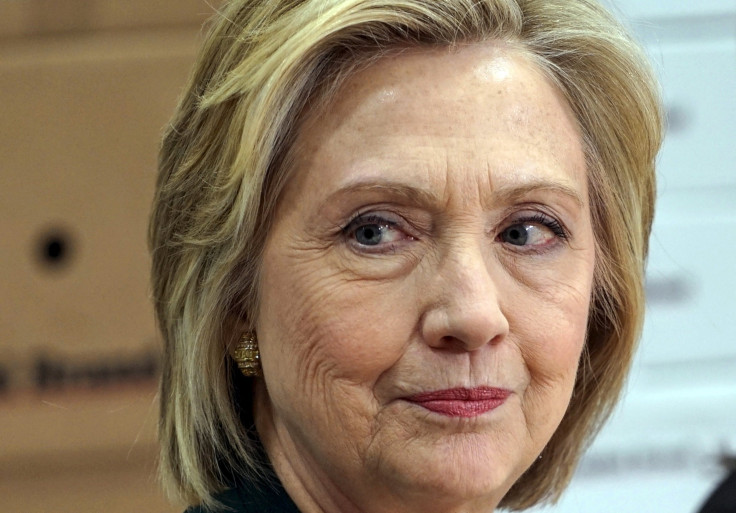Top Clinton Foundation Donor Says His Money Had Nothing To Do With Support For Colombian Trade Deal

The Canadian mining mogul at the center of controversy surrounding the Clinton philanthropic empire and contributions from executives with business interests before the State Department on Thursday broke his silence: He claimed that he and the Clintons have been victimized by sensationalistic reporting.
In a statement posted to CEO.ca, a Canadian business publication, Frank Giustra said that tens of millions of dollars in donations he has made to the Clinton Foundation beginning in 2006 were in no way an attempt to woo Hillary Clinton's support for a free trade agreement in Colombia -- a deal of potential benefit to his business interests.
Giustra took specific aim at a report this week in the New York Times that suggested his contributions to the Clinton Foundation were aimed at gaining the blessing of the State Department -- then about to be headed by Hillary Clinton -- for a lucrative uranium deal involving Russian and Kazakh interests.
"There is not one shred of evidence to back up the Times' conclusions," Giustra wrote. "This is not about me, but rather an attempt to tear down Secretary Clinton and her presidential campaign. If this is what passes for investigative journalism in the United States, it is very sad."
The statement also dismissed a recent report by International Business Times detailing how he and the Colombian oil company he founded, Pacific Rubiales, collectively pledged more than $130 million to the Clinton Foundation before Hillary Clinton changed her position to support an American free trade pact with Colombia.
Giustra failed to respond to IBTimes’ questions for that report, which was published earlier this month and has since been amplified by the forthcoming book “Clinton Cash,” but his statement on Thursday sought to dismiss its validity.
"I sold my shares in Pacific Rubiales several years before the U.S.-Colombia Free Trade Agreement, which, I will note, was approved by several U.S. agencies and the White House," Giustra wrote. "To theorize that I had anything to do with that is sheer conjecture."
Giustra's statement failed to address many of the key questions that have been raised.
IBTimes’ report noted that Giustra's interests in Colombia go well beyond Pacific Rubiales. According to CEO.ca, one of Giustra's firms “owns ports under construction in Cartagena and Barranquilla, as well as power plants, farms, mines and other infrastructure assets scattered across the country.” These holdings all stand to be boosted by growing trade between Colombia and the United States.
Giustra's statement did not mention these other Colombia-related businesses. Nor did he address voluminous reports that Colombia's military has aided industrialists by unleashing targeted violence against striking workers and union organizers at major companies -- not least, Pacific Rubiales.
As Secretary of State, Clinton certified Colombia’s human rights record. This allowed United States aid to continue to flow to the Colombian military despite the admonitions of organized labor and human rights groups who argued that this lent the American imprimatur of legitimacy to labor abuses in the South American country.
The United States Trade Representative’s office has acknowledged that Colombian union organizers and workers have continued to face violence. The Clinton Foundation and Hillary Clinton’s campaign have not responded to IBTimes’ questions about the merits of the State Department's certification or her change of heart about the Colombia free trade agreement. According to Bloomberg News, Clinton aides are now citing the controversy over donations to the Clinton Foundation in their fundraising appeals to Hillary Clinton’s presidential donors.
It is impossible to independently verify Giustra’s assertion that he sold his holdings in Pacific Rubiales: Under Canadian law the company is not required to identify shareholders or detail their transactions unless their holdings exceed 10 percent.
Giustra's statement made no mention of Endeavour Mining, a firm that he chaired for nearly a decade, and on whose board he currently sits. Left unknown is whether Endeavour maintains a previously reported interest in Pacific Rubiales. Endeavour Financial and Pacific Rubiales share two board members.
Giustra's statement principally took aim at the New York Times report on donations to the Clinton Foundation from executives tied to a uranium mining firm in which Giustra had invested. That firm later benefited from a decision by Hillary Clinton’s State Department to approve a Russian bid for uranium deposits in the United States and abroad.
“I sold all of my stakes in the uranium company -- Uranium One -- in the fall of 2007, after it merged with another company,” Giustra said. “I would note that those were sold at least 18 months before Hillary Clinton became the Secretary of State. No one was speculating at that time that she would become the Secretary of State.” He called the Times report “a wildly speculative, innuendo-laced article.”
Giustra did not address the Times’ findings that donations from the company’s chairman were not disclosed by the Clinton Foundation, despite Hillary Clinton signing an agreement pledging to disclose all foundation donations while she was Secretary of State. Those donations, reported the Times, were made “during and after the critical time when the [U.S. government’s] foreign investment committee was reviewing his deal with the Russians.” The Clinton State Department is one of the agencies on the committee.
© Copyright IBTimes 2024. All rights reserved.












